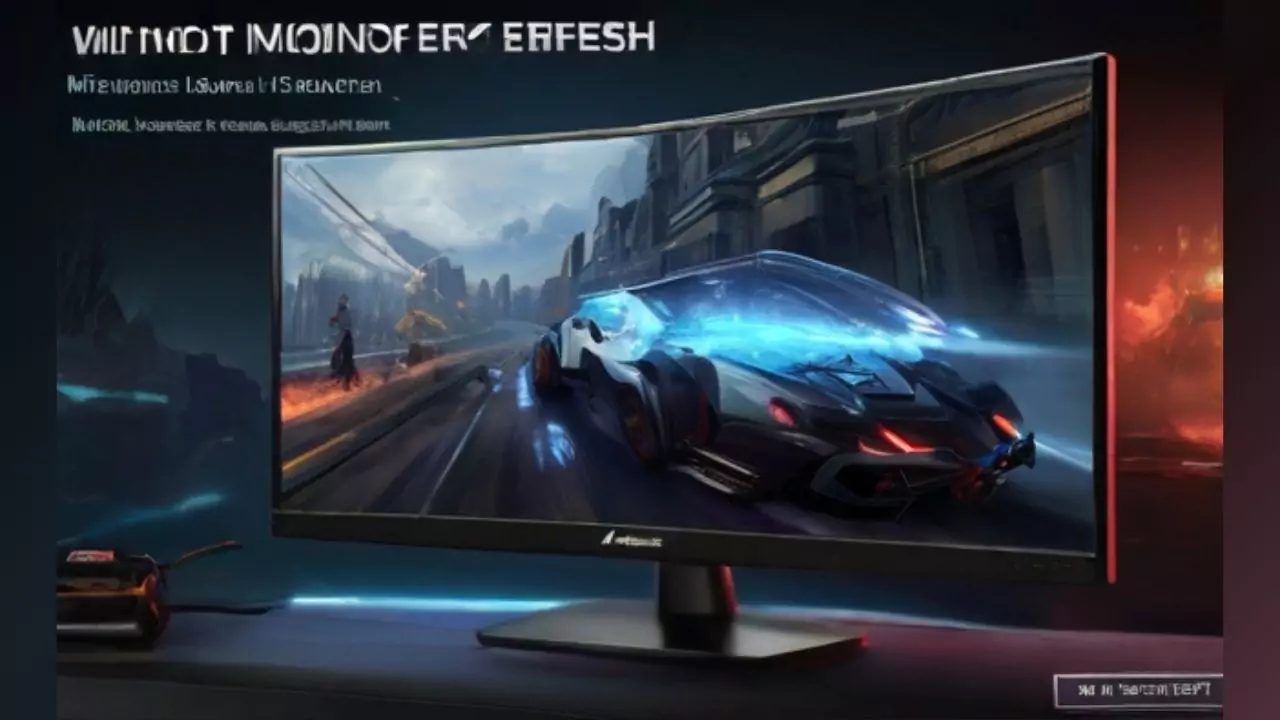Table of Contents
Optimizing Monitor Screen Brightness for Healthy Eyes Best Guide 2024 : If you’re like me, you probably spend a lot of time staring at your computer screen. But have you ever thought about how all that screen time affects your eyes? Well, I did some digging, and I’m here to share what I found out about finding the perfect screen brightness to keep your peepers happy.

Monitor Screen Brightness for Healthy Eyes
Understanding Screen Brightness and Eye Health
Let’s talk about screen brightness – it’s basically how bright or dim your screen looks. Now, having the right brightness is super important because if it’s too bright or too dim, it can make your eyes feel pretty yucky. So, let’s figure out how to get it just right!
How Much Monitor Screen Brightness is Good for Eyes?
Okay, so here’s the deal: you want your screen to be bright enough that you can see everything clearly, but not so bright that it feels like staring into the sun. A good rule of thumb is to set your brightness at around halfway – so if your screen goes from 1 to 10, try setting it around 5 or 6.
Tips for Setting the Perfect Monitor Screen Brightness
Here are some tips to help you find that sweet spot:
Check Your Lighting: Make sure your room isn’t too bright or too dark when you’re using your computer.
Watch Out for Glare: If you see reflections on your screen from lights or windows, try adjusting your brightness to reduce them.
Try Adaptive Brightness: Some devices have a setting that automatically adjusts brightness based on how bright it is around you – pretty cool, right?
Don’t Forget to Adjust: Your eyes change throughout the day, so don’t be afraid to tweak your brightness settings if things start to feel off.
What Happens if Your Brightness Is Wrong?
So, what’s the big deal if your brightness isn’t just right? Well, let me tell you – it can make your eyes feel pretty miserable. Too much brightness can make them feel tired and strained, while too little can make it hard to see and give you headaches.
Read More: Why Is There A White Spot On My Laptop Screen? – Causing Frustration ?
Tips for Keeping Your Eyes Happy
Besides getting your brightness spot-on, there are some other things you can do to keep your eyes feeling their best:
Take Breaks: Give your eyes a break now and then by looking away from your screen and focusing on something far away for a bit.
Make Text Bigger: If you’re squinting to read, try making the text bigger or adjusting the contrast to make it easier on your eyes.
Sit Up Straight: Having good posture can help reduce strain on your neck and eyes, so sit up tall and make sure your screen is at eye level.
Block Out Blue Light: Some screens emit blue light that can mess with your sleep and make your eyes tired, so consider using a filter or special glasses to block it out.
The Science Behind Screen Brightness and Eye Health
Now, you might be wondering why screen brightness matters so much for your eyes. Your eyes have this super cool thing called the iris, which is like a little curtain that controls how much light enters your eye.
When it’s dark, your iris opens up to let in more light so you can see better. But when it’s bright, it tightens up to protect your eyes from getting too much light.
Understanding Blue Light
Now, here’s where things get interesting – screens emit something called blue light, which is a type of light that can mess with your sleep and make your eyes feel tired.
See, blue light is great during the day because it helps keep you alert and awake.
But at night, it can trick your brain into thinking it’s still daytime, which can mess up your sleep cycle.
The Impact of Blue Light on Sleep
Studies have shown that exposure to blue light at night can interfere with your body’s natural sleep-wake cycle, making it harder to fall asleep and stay asleep.
This can leave you feeling groggy and tired the next day – not exactly fun, right?
How Screen Brightness Affects Blue Light Exposure
Now, here’s where screen brightness comes into play. More brighter screen, more blue light emits.
So, if your screen is super bright, it’s like shining a flashlight directly into your eyes – not great for your sleep or eye health.
Reducing Blue Light Exposure
Luckily, there are some things you can do to reduce your exposure to blue light and protect your eyes:
- Use Night Mode: Many devices have a night mode or blue light filter that reduces the amount of blue light emitted by your screen, especially at night.
- Wear Blue Light Glasses: Consider wearing glasses with special lenses that block out blue light, especially if you spend a lot of time in front of screens.
Understanding Monitor Refresh Rate and Its Impact
Alright, let’s switch gears for a bit and talk about monitor refresh rate. You might have heard this term thrown around, especially if you’re into gaming. But what does it actually mean?
What is Monitor Refresh Rate?
Simply put, refresh rate refers to how many times per second your monitor updates the image it displays. It’s measured in Hertz (Hz), with higher numbers meaning more updates per second.
Importance of Monitor Refresh Rate for Gaming
For gamers, monitor refresh rate is crucial because it affects how smooth and responsive the gameplay feels.
A higher refresh rate means smoother motion and less motion blur, which can give you a competitive edge in fast-paced games.
Finding the Best Monitor Refresh Rate
So, what’s the best refresh rate for gaming?
Well, it depends on your setup and preferences, but most gamers aim for refresh rates of 144Hz or higher for a buttery-smooth gaming experience.
Monitor Refresh Rate vs. FPS
Now, you might be wondering how monitor refresh rate relates to FPS (frames per second).
Basically, FPS refers to how many individual frames your graphics card can render per second, while refresh rate determines how many of those frames your monitor can display.
Conducting Your Monitor Refresh Rate Test
If you’re not sure what refresh rate your monitor is currently set to, don’t worry – it’s easy to find out. Just follow these steps:
- Right-click on your desktop and select “Display settings.”
- Scroll down and click on “Advanced display settings.”
- Under “Refresh rate,” you’ll see the current setting – if it’s not what you want, you can change it here.
Frequently Asked Questions
Q: Why does screen brightness matter for eye health?
Screen brightness can affect how your eyes feel – too much can strain them, while too little can make it hard to see.
Q: What’s the best brightness level for using a PC?
It varies depending on how bright it is around you, but aim for around halfway on the brightness scale.
Q: Can my screen adjust brightness on its own?
Some devices have a setting that can automatically adjust brightness based on the lighting around you – pretty handy!
Q: How often should I change my brightness settings?
You might need to tweak them throughout the day as the lighting changes, so don’t be afraid to experiment.
Q: What happens if my brightness is wrong?
If it’s too bright or too dim, it can make your eyes feel tired and strained, or give you headaches – not fun!
Q: Any other tips for keeping my eyes happy?
Yep! Remember to take breaks, make text bigger if you need to, sit up straight, and consider blocking out blue light from your screen.
Q: What is monitor refresh rate, and why is it important for gaming?
Monitor refresh rate refers to how many times per second your monitor updates the image it displays, and it’s crucial for gaming because it affects how smooth and responsive gameplay feels.
Q: What’s the best refresh rate for gaming?
Most gamers aim for refresh rates of 144Hz or higher for a smooth gaming experience.
Q: How does monitor refresh rate relate to FPS?
Monitor refresh rate determines how many frames per second your monitor can display, while FPS refers to how many frames your graphics card can render per second.
Conclusion
Taking care of your eyes is super important, especially when you’re spending a lot of time in front of screens.
By finding the right brightness level, understanding the monitor refresh rate, and following these tips, you can help keep your eyes feeling their best – and that’s something we can all get behind!






